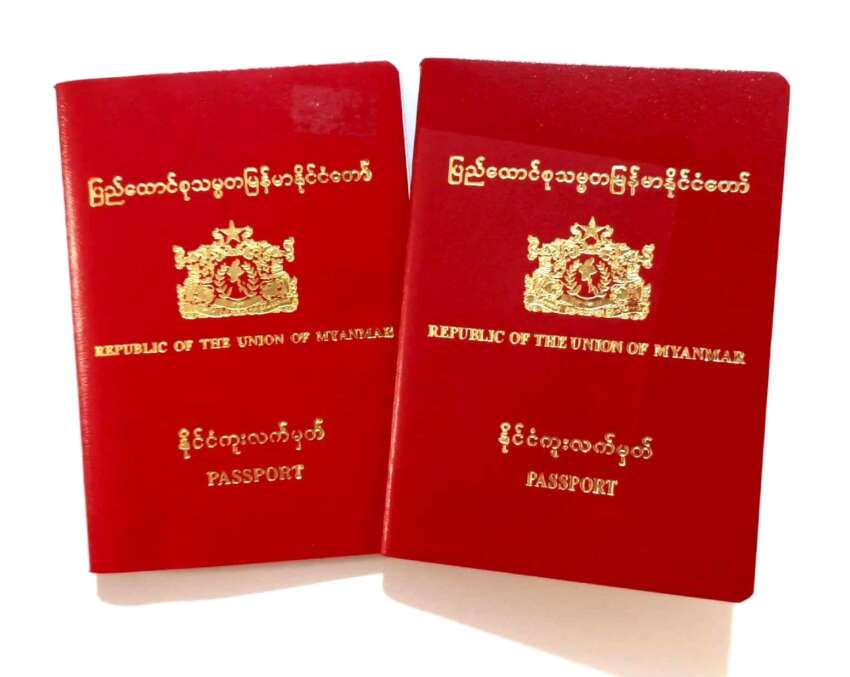
In Yangon, the military council is now requiring children of non-CDM (Civil Disobedience Movement) government employees to obtain ministerial endorsements when applying for passports to travel abroad. According to civil service circles, this new requirement represents a significant tightening of controls over government employees and their families. This restrictive measure, which was not previously in place, demonstrates the military council’s increasing efforts to monitor and control the movement of government employees’ family members.
The process now requires that when children of government employees from various ministries wish to either apply for new passports or renew existing ones, their parents must personally submit a formal request to their respective ministries for endorsement. This ministerial endorsement has become a mandatory document at the passport office. The new procedure requires the civil servant parent to officially notify their ministry and obtain written approval, which has created an additional bureaucratic hurdle for families seeking to travel abroad. This increased oversight has effectively established another layer of control over government employees and their dependents.
Most notably, the military council has completely banned passport issuance and foreign travel for children of CDM participants who oppose the military dictatorship. These restrictions are particularly severe, as CDM staff members are informed that their children will only be eligible for passports if the parents officially withdraw from the CDM movement and submit formal resignation letters to their respective departments. This policy effectively uses family members as leverage against civil servants who have joined the resistance against the military regime. The military council has issued directives stating that no passport applications or foreign travel permissions will be granted to CDM staff or their family members unless they formally renounce their participation in the movement.
In stark contrast, children of high-ranking military officers enjoy significant privileges in the passport application process, facing no restrictions or scrutiny. These individuals can obtain passports with ease and travel abroad frequently without any questioning or investigation. Sources from both civil service circles in Naypyidaw and military insiders confirm that these military families can freely travel internationally without any of the restrictions imposed on other citizens. This disparity in treatment clearly illustrates the ongoing inequities under the military regime, where different standards are applied based on one’s relationship to the military leadership. This systematic discrimination in travel rights and documentation processes reflects the broader pattern of preferential treatment for military-affiliated families while ordinary citizens face increasing restrictions and bureaucratic obstacles.



